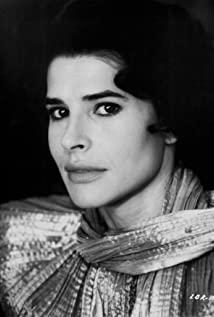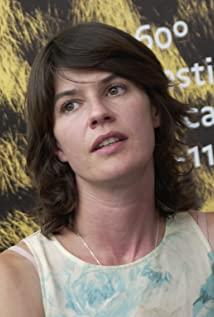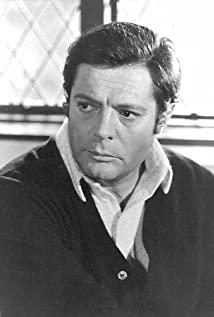Antonioni, who died last year, still did not give up enjoying life in his twilight years. He still drank heavily, laughed and cursed at the people around him, and wrote all the unhappiness on his face. Of course he can't give up thinking. The truth of things is what he has explored throughout his life. This classic erotic movie is the old man’s powerful impact on the truth during his lifetime. Compared with the joining of international superstars, the powerful combination of the two masters (due to the inconvenience of the elderly and unable to speak at the time, Wenders served as the executive director), the beauty of naked women and artistic conception, perhaps it is those who fascinated me more. The philosophical thinking behind the mumbling. It is a pity that the four distorted and pathological love stories finally only proved his "real reality agnosticism".
(1) The
voluntary abandonment of overly idealized love is a spiritual joy.
The first story takes place in Ferrara, the beautiful hometown of the elderly. A misty morning, a man and a woman fall in love at first sight (fog is an image specially arranged by the director). Because the man (played by Kim Rose)'s hesitation for a while led to mutual misses. Passing by made this affair a sacred and inviolable ideal in their hearts. Three years later, they met again, but there was no way to turn their ideals into reality. It took me a long time to understand this story. Because men take this relationship too seriously and ideally, some small flaws in the truth can easily break perfection. He would rather give up possession in order to fulfill himself. A piece of piano as delicate as silk rose slowly from the man's entrance into the woman's house, and watched their last-minute affectionate stares. The man then turned and walked towards the still misty distance.
(2) The love that is too windy and clear.
They are looking for the true and unforgettable love in life, but in the night, everything has disappeared.
The clue character of the four stories is a director who appears in the play on behalf of the elderly. The so-called days on the cloud are the generalization of the life of the elderly, watching the world from a high place, using images to convey self-feelings and entangle sorrows and joys with them. By the side of a tranquil water port, the director meets a neurotic woman (played by Sophie Marceau). The woman's eyes are alienated and nervous, stubbornly thinking that her past is an obstacle to the pursuit of happiness. Although the director accepted the reality that she stabbed her father with twelve knives, she was still intimidated by the truth-twelve knives. This palpable figure includes all the truth required by the story. So their love can only become an instant game. After a moment of lingering, the director's expression still becomes rigid. Nevertheless, the woman smiled happily because of preciousness. We cannot stop pursuing the truth, nor can we stop being afraid of it.
(2) The overly carnal
possession of love is the beginning of boredom.
In the third story, a middle-aged man wandering between the bodies of two women appeared. Needless to say, he walked too fast and lost his soul. He was scarred in desire for a long time, but he still wanted to balance himself with betrayal. And the two women, exhausted, lingering, trying to find fresh air, one could not get rid of the dependence of the flesh, and the other, once again walked into the unknown abyss. No matter how badly he is hurt in love, it will not prevent him from accepting the next love.
(3)
Nothing is certain in an overly desperate love life, and the separation and recombination of people is the true face of life.
The beautiful Jacob became a disciple with his heart locked this time. Her face was radiant, but her thoughts were pale and weak. Faced with the repeated attacks on the hedonistic outlook on life of the men who came to strike up a conversation, she did not waver at all, and walked towards the church calmly and religiously. The dialogue was too deep: the man asked, if I said I love you, what would you do, the woman replied, it was like lighting a candle in a brightly lit room. She finally expressed the despair and fear in our hearts! At the end of this story, the woman told her reason for her morbid rejection of love: I am going to be a nun tomorrow. Then shut the door tightly.
At the end of the film, a beautiful long lens peeked at the people in each window. The old man seemed to want to pursue "the absolute and mysterious real picture", but the reality was too complicated, complicated and blunt, and he was obviously a little powerless. Throughout his life, Antonioni has been deeply torturing and expressing sincere care for the lack of emotion in this society.
It is a pity that the truth cannot be restored. The love now is no longer the natural love that God created in the first place.
View more about Beyond the Clouds reviews











